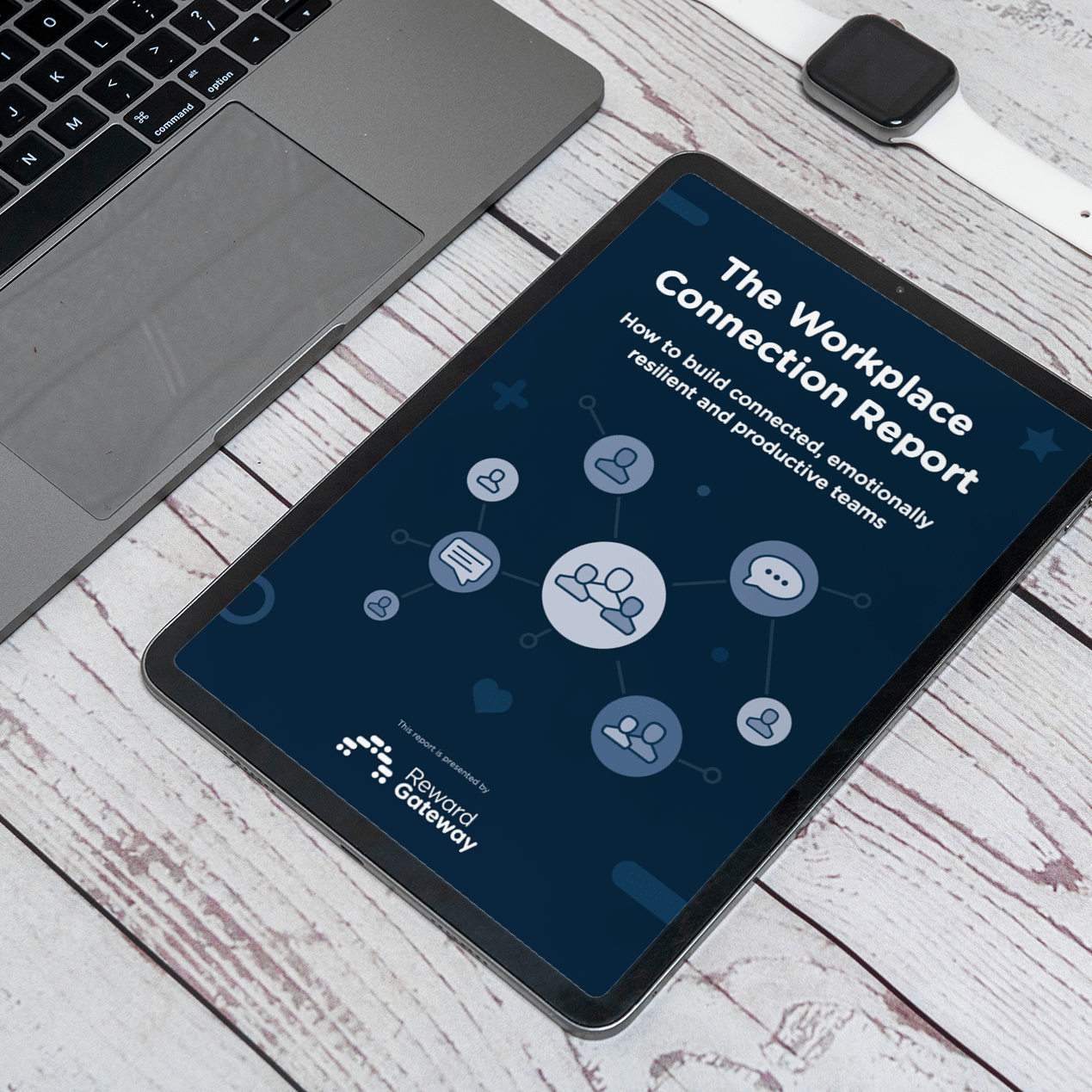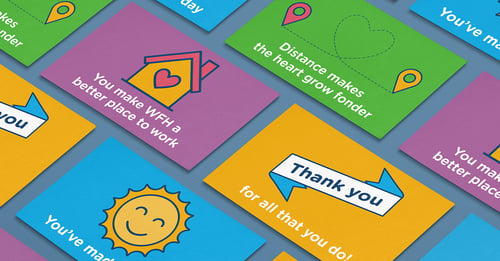As discovered in our Workplace Connection Report, loneliness is affecting the professional lives of many across the UK, a landscape already divided into remote, hybrid and office working arrangements.
It’s likely your LinkedIn feed is awash with industry gurus promoting the benefits of remote work from tropical locations, but the reality is most are working from the comfort and confines of their own homes. While there are pros and cons to both remote and office working, the challenges for both are distinct. In this case, however, it’s hard to deny the growing trend of loneliness in those working from home - with 1 in 4 full-time remote workers admitting they often felt lonely at work.

Dive into our latest research to learn more about the impact of loneliness on employee engagement.
Why do some employees feel lonely working from home?
There’s no doubt working from home full time can save some employees a lot of time and money. The costs of commuting and buying lunch every day quickly rack up, and so the boost to an individual’s financial wellbeing when working from home can’t be understated.
But working from home ultimately reduces face-to-face interaction between employees, limiting those opportunities for teams to forge closer connections. It hasn’t helped that this is also occurring at the same time that many are reducing their spending on socialising as a result of the cost of living crisis. For some, interacting with peers provides an opportunity to build connections and de-stress that may not be as regular as in their personal lives.

And it’s not just the social aspect of interacting with others that WFH staff might be missing out on. Disjointed communication around work matters, and a lack of recognition for efforts can lead some employees to feeling disillusioned with the work they are doing and unable to see the impact they are having in the business. 54% of the employees surveyed in the report believed that improved recognition would help them to feel more connected to the business. This is an area, however, that is easily neglected in the world of remote work.
So, what can HR teams do to support those working from home feeling isolated and lonely? Summoning everyone back to the office certainly isn’t advisable, and likely wouldn’t solve the problem – particularly when 26% of office-only staff reported the same levels of loneliness! Revisiting your wellbeing programme and incorporating some of the below strategies can be a quick and impactful way to support your work-from-home staff.
What can HR do to address remote work loneliness?
Incorporate loneliness awareness into your wellbeing programmes
An effective wellbeing programme benefits all staff, regardless of whether they’re remote, hybrid or office-based. Offering mental wellbeing support can be crucial when it comes to helping staff who are feeling lonely working from home. Of the employees who rated the support they receive as “excellent” or “good”, only 17% said they often felt lonely at work. This is a stark contrast to the 42% who received poor support and admitted to frequently experiencing loneliness at work
Providing your employees with access to the Wellness Center and its range of resources to support mental, physical and financial wellbeing is a solid foundation to building a connected and resilient workforce, both at home and in the office. But offering wellbeing programmes is just half the battle for HR teams: Awareness is key, and it’s up to you to spread the message across your organisation and reduce the stigma associated with loneliness and wellbeing.

Provide your WFH staff with the recognition tools they need
As mentioned, improved recognition within the workplace was top of the bill for employees as a means to drive better connections. By providing reward and recognition tools, you can empower employees to celebrate their peers’ contributions and be recognised by leadership. This makes it easier to draw clear links between the work of your employees and the success of the organisation and makes work more meaningful – something 26% of respondents said would help them feel better connected to their peers and employer.
Creating a community of continuous recognition at your organisation can be even more beneficial for remote staff, who often miss out on the opportunity to receive gratitude and praise for their work in person. One inexpensive way to improve recognition is to introduce the practice of giving eCards. These can be used to celebrate wins both big and small and are a great way to bring employees and their leaders together – and to spread the news of good work across teams and departments, which helps employees understand the unfamiliar. Birthdays and work anniversaries are one thing, but why not give your team the tools to celebrate a good job well done on the latest report or presentation?
Don’t shy away from asking about the state of loneliness
The best way to find out how widespread feelings of loneliness are in your company is simply to ask. It can be hard to know how a workforce is feeling; providing a platform to hear concerns doesn’t guarantee employees will feel comfortable sharing them. In fact, our survey highlighted a gap between the views of both HR and other employees:
57% of HR leaders rated their mental wellbeing offerings as excellent or good, with 10% rating them poor. However, only 49% of employees rated mental wellbeing support as excellent or good, with 19% rating it as poor.
Engagement surveys can be a great way to temperature-check your remote staff, offering them a safe platform to share how they are feeling and how aware they are of the wellbeing support available to them. Once you know the size of the challenges you’re facing, it’s much easier to take the steps to overcome them.
Discover how to engage your remote workers in these challenging times and build connections across your organisations.
Talk to an Engagement Consultant »

 Nebel Crowhurst
Nebel Crowhurst



